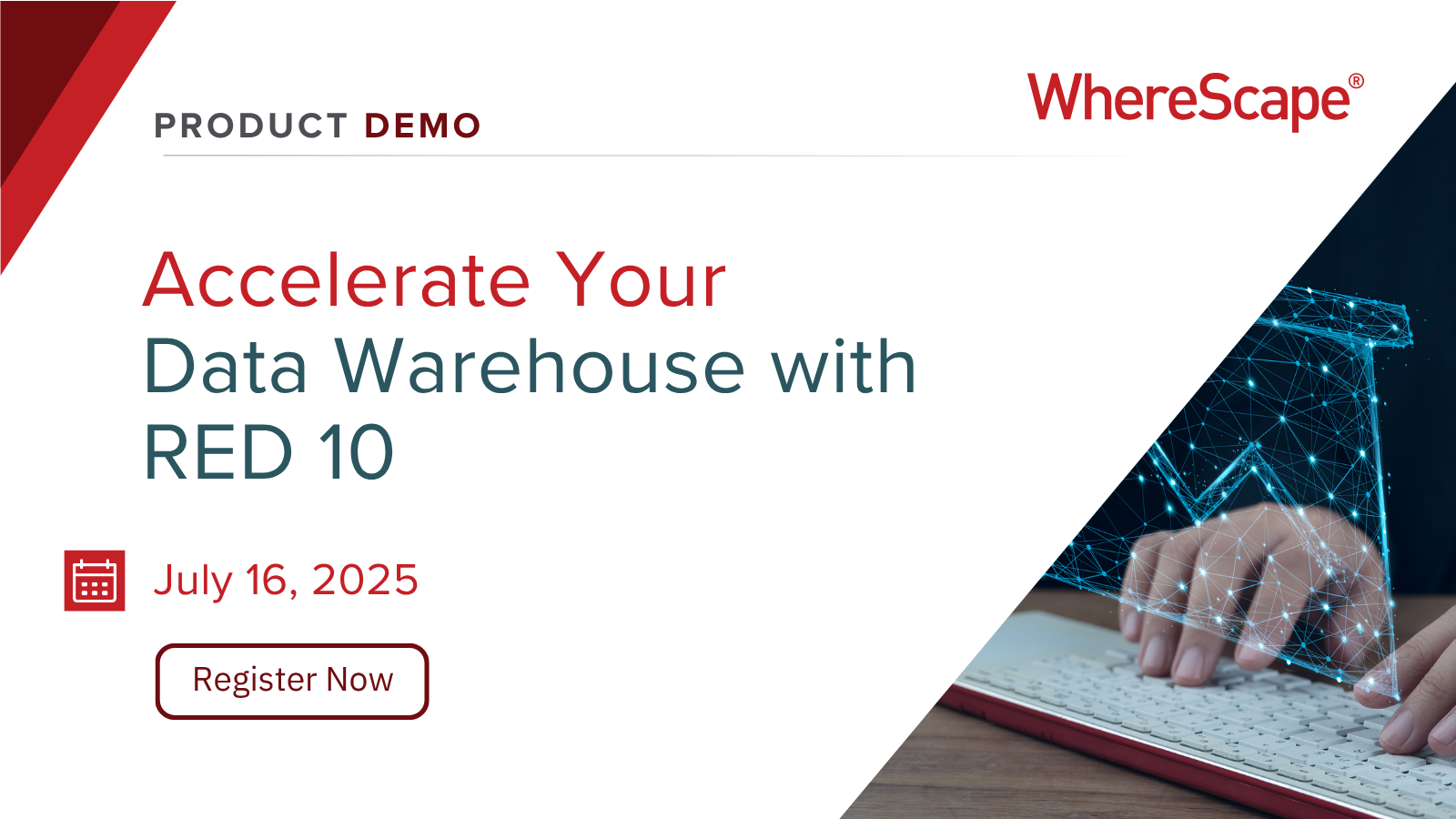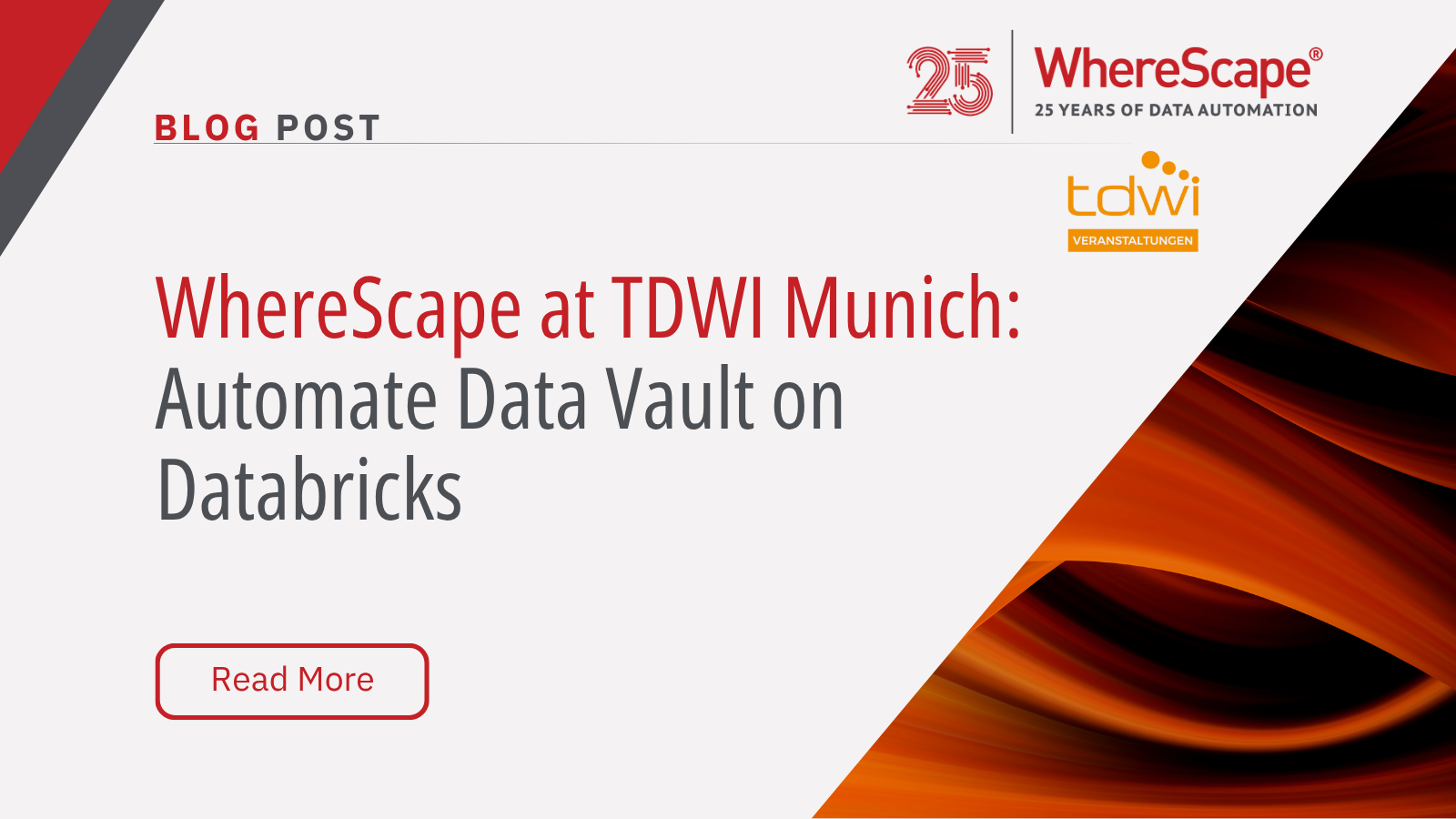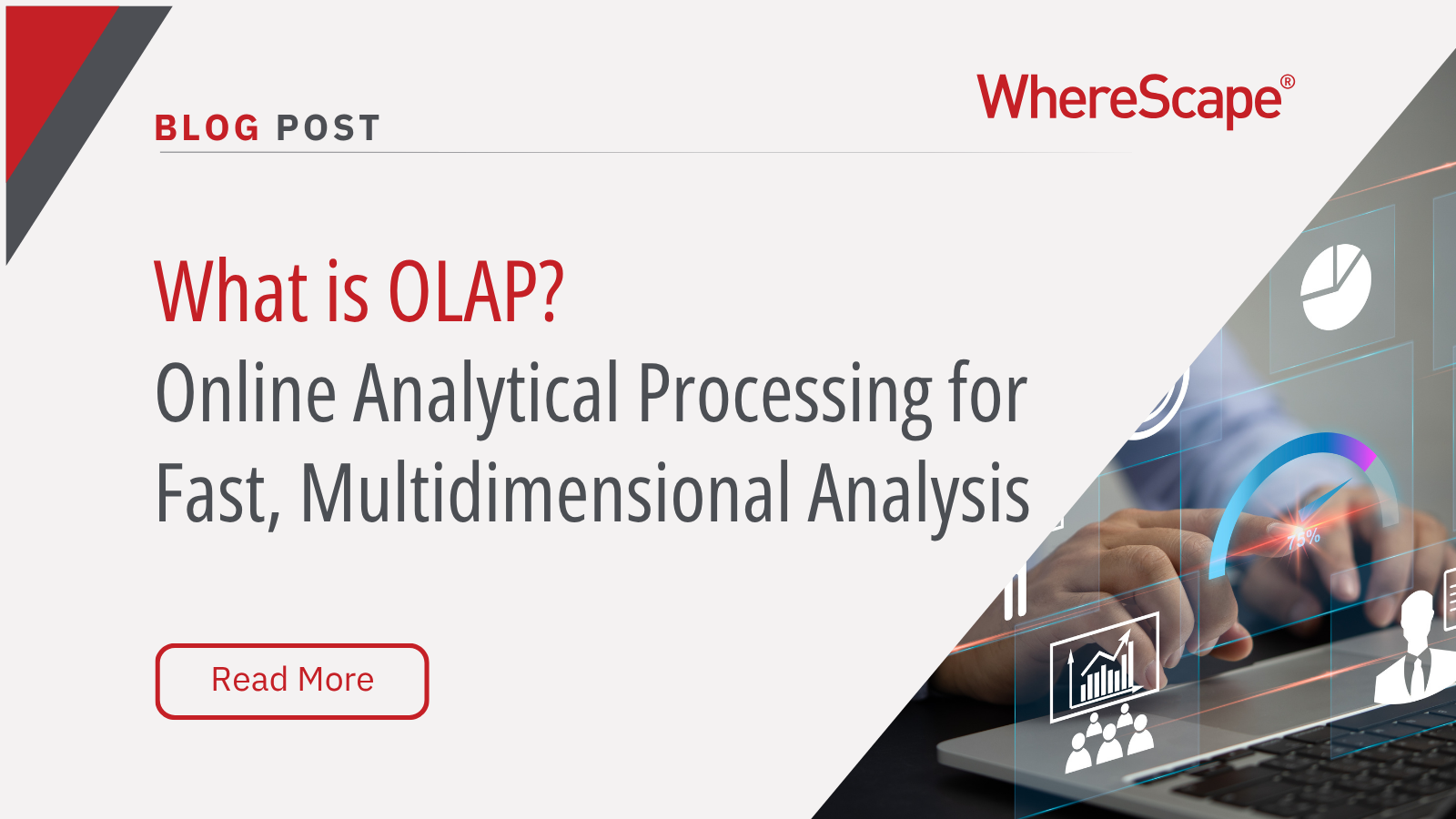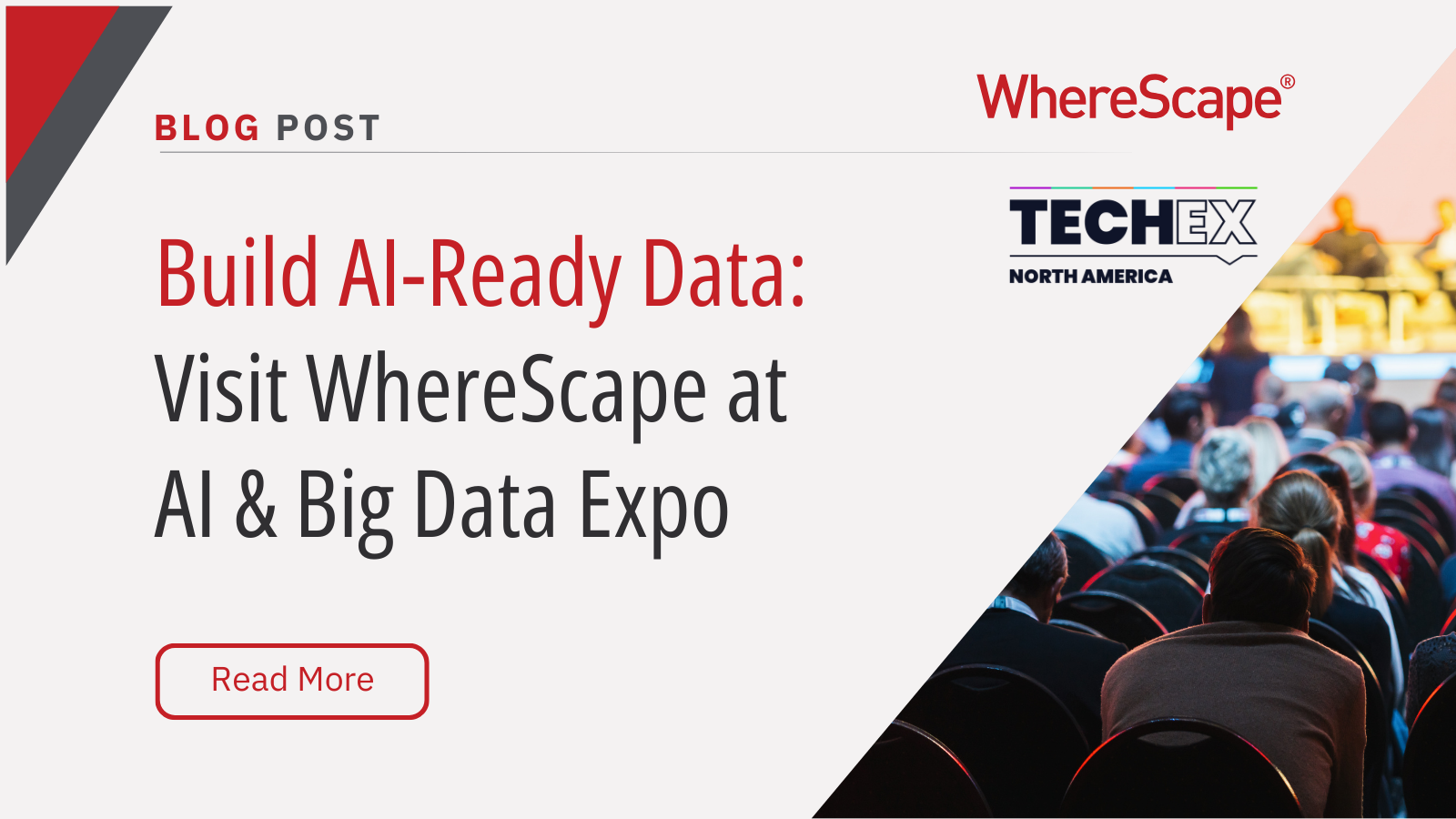Tune in for a free, live virtual hands-on lab...
Streamlining Data Migration to Microsoft Fabric with WhereScape
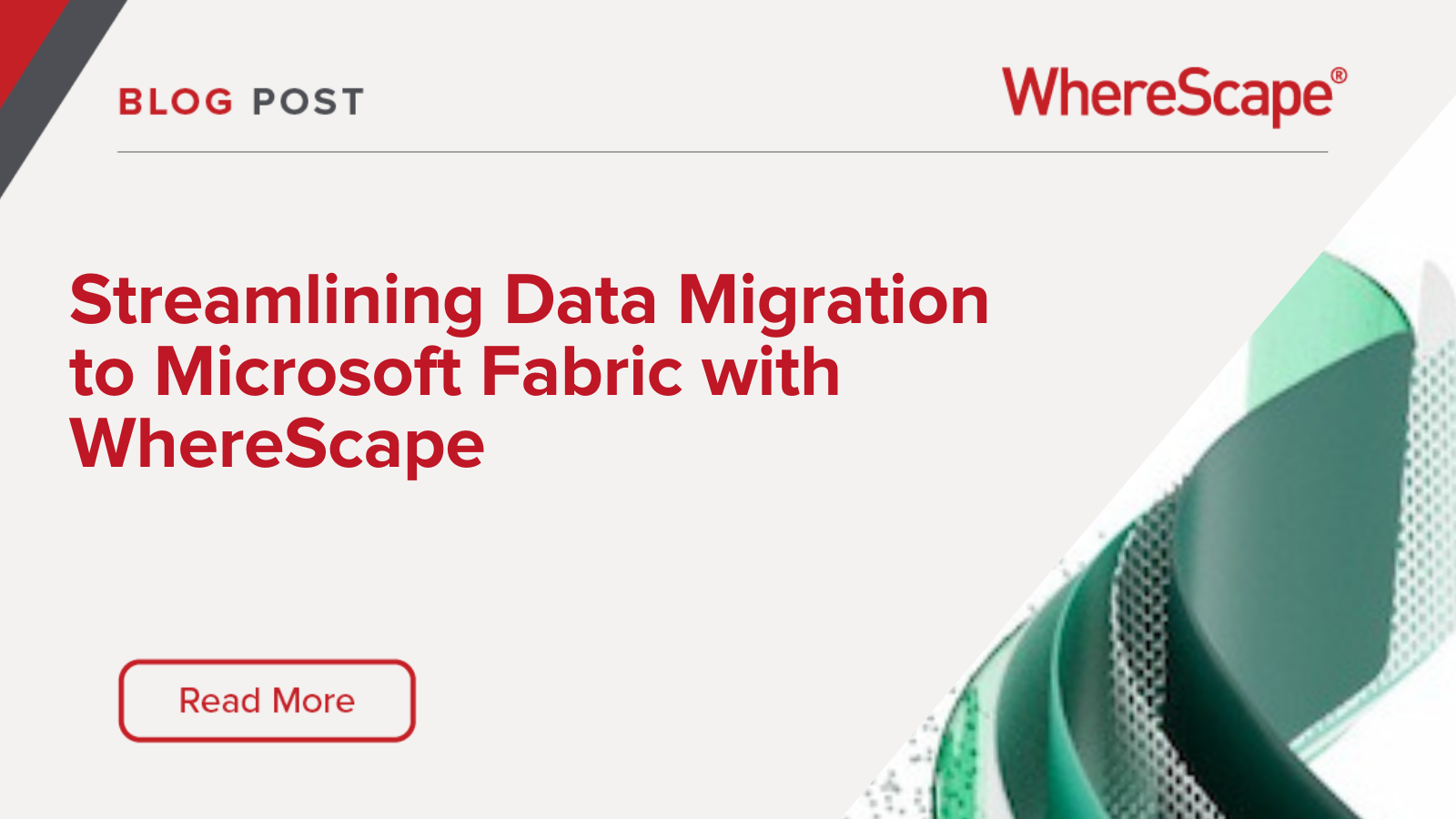
Data Migration Challenges
Migrating data can pose several problems for enterprise teams, turning an exciting new opportunity into a potentially risky endeavor. If you don’t execute the process correctly, you can lose or corrupt data, which can lead to unplanned downtime, data integrity issues, and even security breaches. Many teams find the process of creating a reliable transfer system to be daunting. In some cases, they need to bridge gaps across varying data formats, different platforms, and mismatched structures, making it difficult to standardize strategies.
The Complexity of Modern Data Environments
The complexity of modern data environments lies mostly in the fact that they are diverse in their structure, contents, and scale. Depending on the industry, modern data environments could be integrating data from educational record systems, IoT scanners on a warehouse floor, or a variety of other sources.
Because of this complexity, modern data teams require sophisticated solutions to make sure integrations can occur without unintended side effects. In some industries like healthcare, the health and safety of patience relies on data integrity, and compliance standards demand excellent security measures. Across industries, high data volume necessitates a fast and efficient data environment.
Why Microsoft Fabric for Your Data Ecosystem?

Microsoft Fabric is ideal for managing complex data environments because of its robust, scalable platform and its flexible architecture.
Advantages of Microsoft Fabric
Microsoft Fabric helps data teams access the following advantages:
- Improved efficiency
- Long-term savings
- An agnostic platform that can accommodate diverse data environments
- Decentralized mesh fabric architecture
- Simplified data integration
- Microsoft’s AI tool, Copilot
- Reduction in manual tasks by 50%
- Increase in productivity
- Streamlined code generation and cloud integration
- Automated documentation
- Access to Microsoft’s full suite of services including Data Engineering, Data Factory, Sata Science, Real-Time Analytics, Data Warehouse, and Databases
Each of these features help make MS Fabric a top choice for data teams across industries.
Role of WhereScape in Facilitating Smooth Migrations
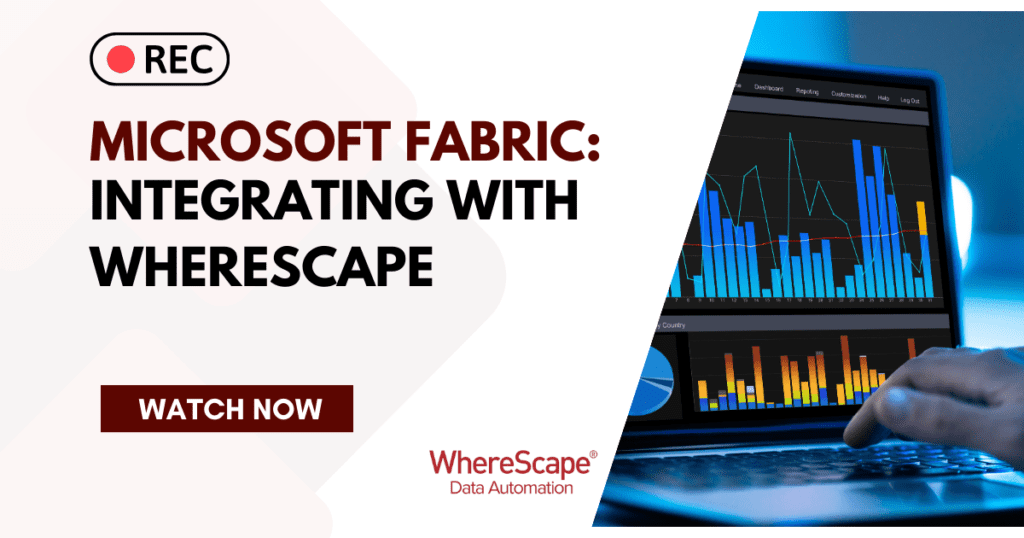
The best way to take full advantage of the many useful MS Fabric features is to integrate this solution with WhereScape. WhereScape will also help you in migrating your data to Microsoft Fabric, preventing data loss and corruption.
Simplifying the Migration Process
WhereScape simplified the migration process to Microsoft Fabric using a single low-code interface. Through data automation and ongoing technical support, WhereScape allows for an enhanced and streamlined integration with Microsoft Fabric.
Key Features of WhereScape for Migration
Migration becomes simpler and less risky with a metadata-driven automation software like WhereScape. The following features make WhereScape a top choice for a seamless migration:
- Automated ETL processes
- Metadata management
- Comprehensive data lineage tracking
- Automated documentation
- Low-code interface
Step-by-Step Guide to Migrating with WhereScape
In order to migrate to Microsoft Fabric using WhereScape’s data automation solution, follow a strategic process of planning and execution.
Planning Your Migration
The planning phase should include the development of a strategic migration roadmap and the creation of a realistic timeline. This is also a good time to agree on success criteria so that all team members are on the same page about ideal outcomes.
Next, analyze your current data environment to identify all the data sources that require migration. Take the time to address any industry regulations that govern your data, especially if you work with sensitive patient data or student data.
Executing Migration with WhereScape
With your strategic plan in place, it’s time to let WhereScape do the heavy lifting. WhereScape’s automation tools and project-ready enablement packs manage the data transfer process efficiently and reliably so that you can begin leveraging your exciting new tools as quickly as possible. Since WhereScape is database agnostic, you can easily make changes to your tech stack while using powerful automated cloud infrastructure.
Overcoming Common Migration Pitfalls

The most common mistakes teams make when approaching a data migration are inadequate planning, insufficient testing, and trying to use low-quality data. Without a comprehensive migration plan, it’s all too easy to end up with an incomplete data transfer or a set of discrepancies. Migration also requires thorough testing before, during, and after the migration in order to address errors and inconsistencies as soon as possible.
Anticipating Challenges
By testing and planning before you begin your migration process, you can anticipate future challenges and address them before they cause irreparable damage to your business and your data. Address all regulatory requirements, accessibility concerns, and potential workflow disruptions before you begin the migration process. These steps will allow you to keep your data protected while keeping up with compliance measures.
Maximizing ROI with WhereScape and Microsoft Fabric
WhereScape’s cloud migration solutions not only help data teams make the transition to Microsoft Fabric, they also allow for a higher level of benefits from both tools. Within MS Fabric’s Purview Hub, WhereScape adds a metadata management layer, which can help reduce modeling time and setup requirements while also ensuring that all data is uniform, accurate, and accessible. These benefits pave the way for maximum ROI and improved efficiency enterprise-wide.
Long-Term Benefits of a Successful Migration
All teams should determine their individual success criteria, but successful migration generally means you’ve transitioned to a new and improved solution without losing or compromising your data, or interfering with time-sensitive business operations. The long-term benefits of a successful migration include reliable data, more accurate insights, and an upgraded data management solution.
To enhance the benefits of top data platforms like MS Fabric, use them in tandem with automation software like WhereScape. Book your demo today!
WhereScape at TDWI Munich: Automate Data Vault on Databricks
WhereScape at TDWI Munich 2025: Automate a Full Data Vault on Databricks in Just 45 Minutes June 24–26, 2025 | MOC Munich, Germany As data complexity grows and business demands accelerate, scalable and governed data architectures are no longer optional—they're...
What Is OLAP? Online Analytical Processing for Fast, Multidimensional Analysis
Streamline your data analysis process with OLAP for better business intelligence. Explore the advantages of Online Analytical Processing (OLAP) now! Do you find it challenging to analyze large volumes of data swiftly? A Forrester study reveals that data teams spend...
Build AI-Ready Data: Visit WhereScape at AI & Big Data Expo
June 4–5, 2025 | Booth 202 | Santa Clara Convention Center As organizations scale their artificial intelligence and analytics capabilities, the demand for timely, accurate, governed, and AI-ready data has become a strategic priority. According to Gartner, through...
Automating Star Schemas in Microsoft Fabric: A Webinar Recap
From Data Discovery to Deployment—All in One Workflow According to Gartner, data professionals dedicate more than half of their time, 56%, to operational tasks, leaving only 22% for strategic work that drives innovation. This imbalance is especially apparent when...
What is a Data Model? How Structured Data Drives AI Success
What is a data model? According to the 2020 State of Data Science report by Anaconda, data scientists spend about 45% of their time on data preparation tasks, including cleaning and loading data. Without well-structured data, even the most advanced AI systems can...
ETL vs ELT: What are the Differences?
In working with hundreds of data teams through WhereScape’s automation platform, we’ve seen this debate evolve as businesses modernize their infrastructure. Each method, ETL vs ELT, offers a unique pathway for transferring raw data into a warehouse, where it can be...
Dimensional Modeling for Machine Learning
Kimball’s dimensional modeling continues to play a critical role in machine learning and data science outcomes, as outlined in the Kimball Group’s 10 Essential Rules of Dimensional Modeling, a framework still widely applied in modern data workflows. In a recent...
Automating Data Vault in Databricks | WhereScape Recap
Automating Data Vault in Databricks can reduce time-to-value by up to 70%—and that’s why we hosted a recent WhereScape webinar to show exactly how. At WhereScape, modern data teams shouldn't have to choose between agility and governance. That's why we hosted a live...
WhereScape Recap: Highlights From Big Data & AI World London 2025
Big Data & AI World London 2025 brought together thousands of data and AI professionals at ExCeL London—and WhereScape was right in the middle of the action. With automation taking center stage across the industry, it was no surprise that our booth and sessions...
Why WhereScape is the Leading Solution for Healthcare Data Automation
Optimizing Healthcare Data Management with Automation Healthcare organizations manage vast amounts of medical data across EHR systems, billing platforms, clinical research, and operational analytics. However, healthcare data integration remains a challenge due to...
Related Content
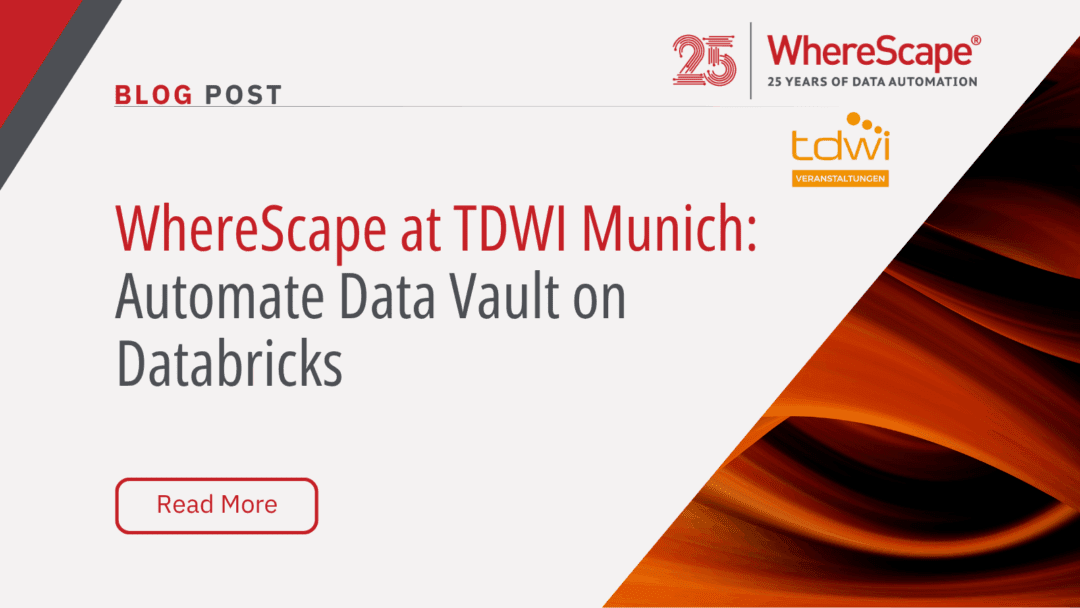
WhereScape at TDWI Munich: Automate Data Vault on Databricks
WhereScape at TDWI Munich 2025: Automate a Full Data Vault on Databricks in Just 45 Minutes June 24–26, 2025 | MOC Munich, Germany As data complexity grows and business demands accelerate, scalable and governed data architectures are no longer optional—they're...
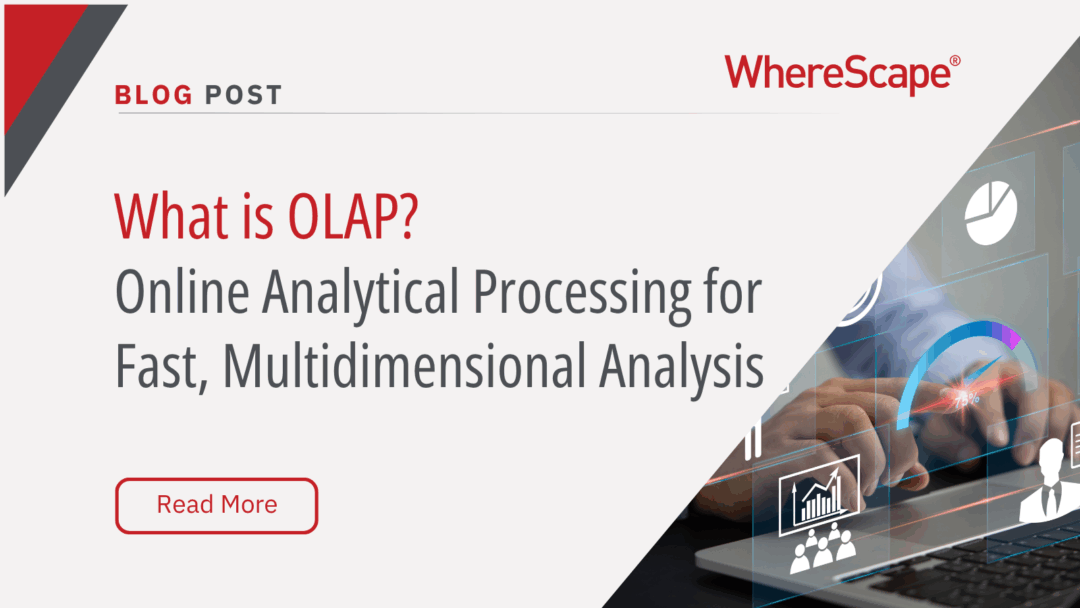
What Is OLAP? Online Analytical Processing for Fast, Multidimensional Analysis
Streamline your data analysis process with OLAP for better business intelligence. Explore the advantages of Online Analytical Processing (OLAP) now! Do you find it challenging to analyze large volumes of data swiftly? A Forrester study reveals that data teams spend...
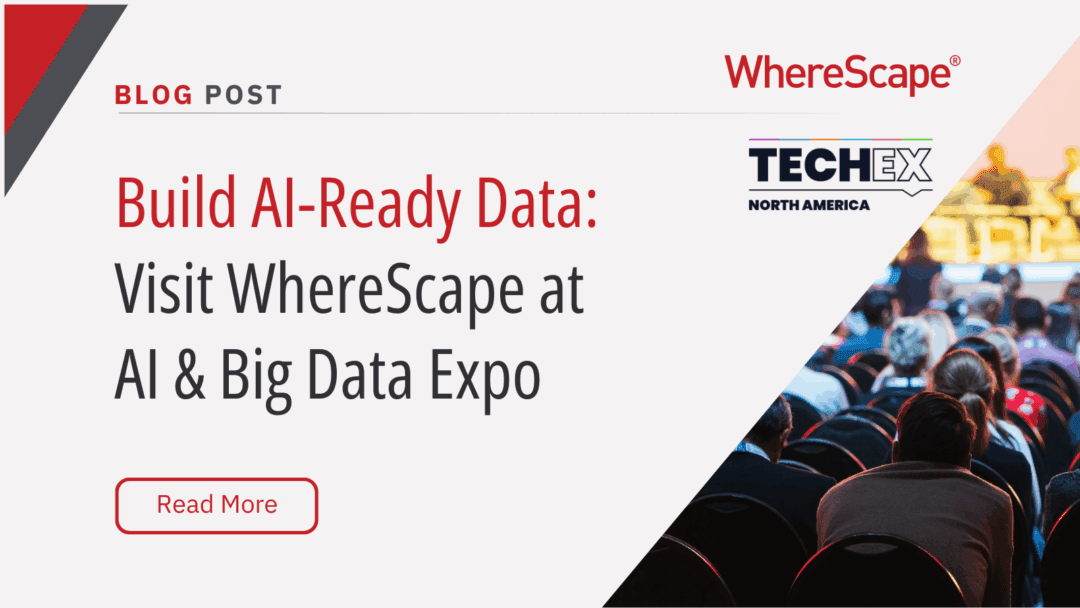
Build AI-Ready Data: Visit WhereScape at AI & Big Data Expo
June 4–5, 2025 | Booth 202 | Santa Clara Convention Center As organizations scale their artificial intelligence and analytics capabilities, the demand for timely, accurate, governed, and AI-ready data has become a strategic priority. According to Gartner, through...
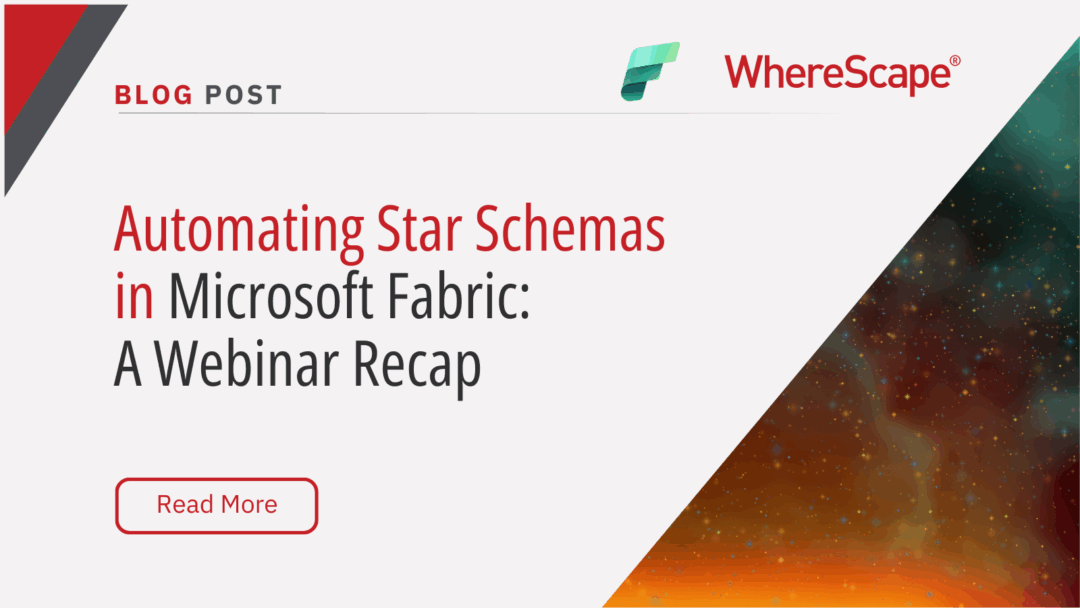
Automating Star Schemas in Microsoft Fabric: A Webinar Recap
From Data Discovery to Deployment—All in One Workflow According to Gartner, data professionals dedicate more than half of their time, 56%, to operational tasks, leaving only 22% for strategic work that drives innovation. This imbalance is especially apparent when...

